Filter by

Islamic science and the making of the European Renaissance
"The Islamic scientific tradition has been described many times in accounts of Islamic civilization and in general histories of science, with most authors tracing its beginnings to the appropriation of ideas from other ancient civilizations - the Greeks in particular. In this thought-provoking and original book, George Saliba argues that, contrary to the generally accepted view, the foundations…
- Edition
- -
- ISBN/ISSN
- 9780262282888
- Collation
- 1 online resource (xi, 315 pages) :illustrations.
- Series Title
- -
- Call Number
- -
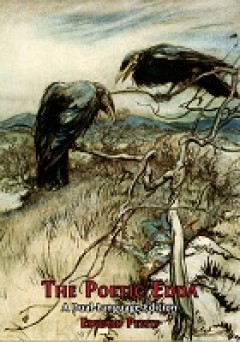
The Poetic Edda: A Dual-Language Edition
This book is an edition and translation of one of the most important and celebrated sources of Old Norse-Icelandic mythology and heroic legend, namely the medieval poems now known collectively as the Poetic Edda or Elder Edda. Included are thirty-six texts, which are mostly preserved in medieval manuscripts, especially the thirteenth-century Icelandic codex traditionally known as the Codex Regi…
- Edition
- Ed. 1
- ISBN/ISSN
- 9781800647725, 9781800647732
- Collation
- 894
- Series Title
- -
- Call Number
- 801 PET p
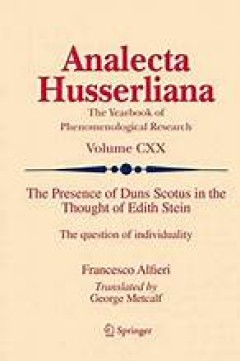
The Presence of Duns Scotus in the Thought of Edith Stein
This book examines the phenomenological anthropology of Edith Stein. It specifically focuses on the question which Stein addressed in her work Finite and Eternal Being: What is the foundational principle that makes the individual unique and unrepeatable within the human species? Traditional analyses of Edith Stein’s writings have tended to frame her views on this issue as being influenced by …
- Edition
- 1
- ISBN/ISSN
- 978-3-319-15663-7
- Collation
- Filsafat
- Series Title
- -
- Call Number
- 100
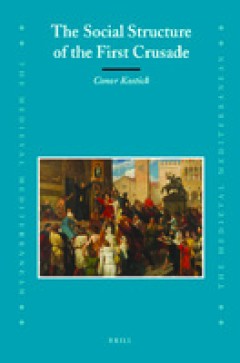
The Social Structure of the First Crusade
This books provides a detailed analysis of the social structure of the First Crusade (1096 – 1099) along with an original assessment of the sociology of its contemporary or near contemporary sources.
- Edition
- Ed. 1
- ISBN/ISSN
- 9789047445029
- Collation
- -
- Series Title
- The Medieval Mediterranean
- Call Number
- 909.82 KOS s
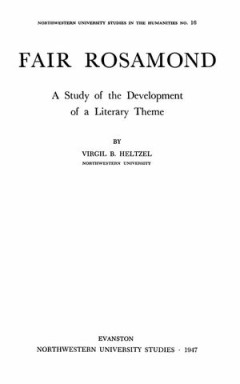
Fair Rosamond : A Study of the Development of a Literary Theme
In Fair Rosamond, Virgil B. Heltzel traces the character of Rosamond Clifford, known as Fair Rosamond - which has its origins as a theme in medieval literature -through its use in poetry and plays and novels, from the Renaissance through the early twentieth century. Heltzel’s book retains its importance today for scholars tracing certain thematic structures through all periods of literature.
- Edition
- -
- ISBN/ISSN
- 9780810138452
- Collation
- -
- Series Title
- -
- Call Number
- 370 HEL f

The Battle of Vouillé, 507 CE: Where France Began
This volume highlights the heretofore largely neglected Battle of Vouillè in 507 CE, when the Frankish King Clovis defeated Alaric II, the King of the Visigoths. Clovis` victory proved a crucial step in the expulsion of the Visigoths from Francia into Spain, thereby leaving Gaul largely to the Franks. It was arguably in the wake of Vouillè that Gaul became Francia, and that "France began." Th…
- Edition
- -
- ISBN/ISSN
- 9781614510994
- Collation
- -
- Series Title
- -
- Call Number
- -
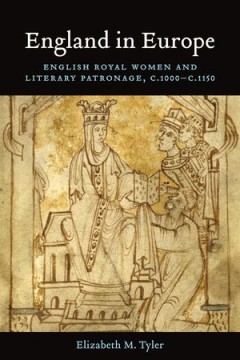
England in Europe : English Royal Women and Literary Patronage, c.1000-c.1150
In England in Europe, Elizabeth Tyler focuses on two histories: the Encomium Emmae Reginae, written for Emma the wife of the Æthelred II and Cnut, and The Life of King Edward, written for Edith the wife of Edward the Confessor.Tyler offers a bold literary and historical analysis of both texts and reveals how the two queens actively engaged in the patronage of history-writing and poetry to e…
- Edition
- -
- ISBN/ISSN
- 9781442640726
- Collation
- -
- Series Title
- -
- Call Number
- 800 TYL e
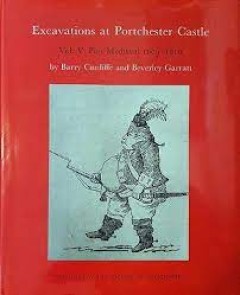
Excavations at Portchester Castle Vol. V: Post Medieval 1609–1819
In the fifth and final report on the excavations at Portchester Castle, the last stage of the castle’s useful life is considered in full. The excavations undertaken between 1961 and 1979 brough to light structural evidence of the various buildings erected during the period 1609–1819, together with a large collection of varied artefacts. This evidence is presented against the backgrounds of …
- Edition
- -
- ISBN/ISSN
- 9780854312641
- Collation
- -
- Series Title
- -
- Call Number
- -
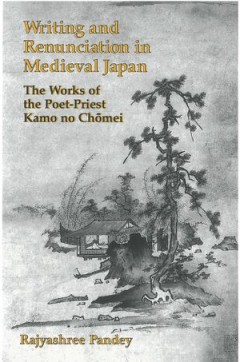
Writing and Renunciation in Medieval Japan: The Works of the Poet-Priest Kamo…
This is the first monograph-length study in English of Kamo no Chomei, one of the most important literary figures of medieval Japan. Drawing upon a wide range of writings in a variety of genres from the Heian and Kamakura periods, Pandey focuses on the terms kyogen kigo (wild words and fancy phrases), shoji soku nehan (samsara is nirvana), hoben (expedient means), and suki (single-minded devoti…
- Edition
- -
- ISBN/ISSN
- 9780472901890
- Collation
- -
- Series Title
- -
- Call Number
- 909.81 PAN w

Tales of Times Now Past: Sixty-Two Stories from a Medieval Japanese Collection
Tales of Times Now Past is a translation of 62 outstanding tales freshly selected from Konjaku monogatari shu, a Japanese anthology dating from the early twelfth century. The original work, unique in world literature, contains more than one thousand systematically arranged tales from India, China, and Japan. It is the most important example of a genre of collections of brief tales which, becaus…
- Edition
- -
- ISBN/ISSN
- 9780472902118
- Collation
- -
- Series Title
- -
- Call Number
- 909.81 URY t
 Computer Science, Information & General Works
Computer Science, Information & General Works  Philosophy & Psychology
Philosophy & Psychology  Religion
Religion  Social Sciences
Social Sciences  Language
Language  Pure Science
Pure Science  Applied Sciences
Applied Sciences  Art & Recreation
Art & Recreation  Literature
Literature  History & Geography
History & Geography